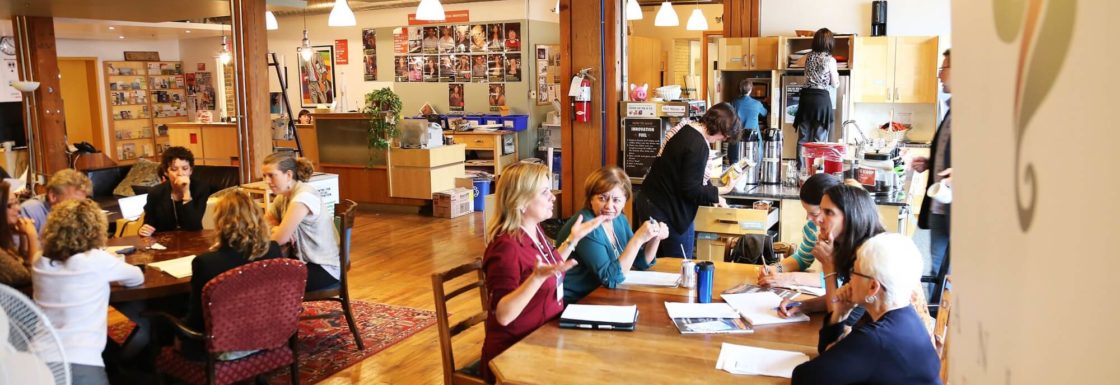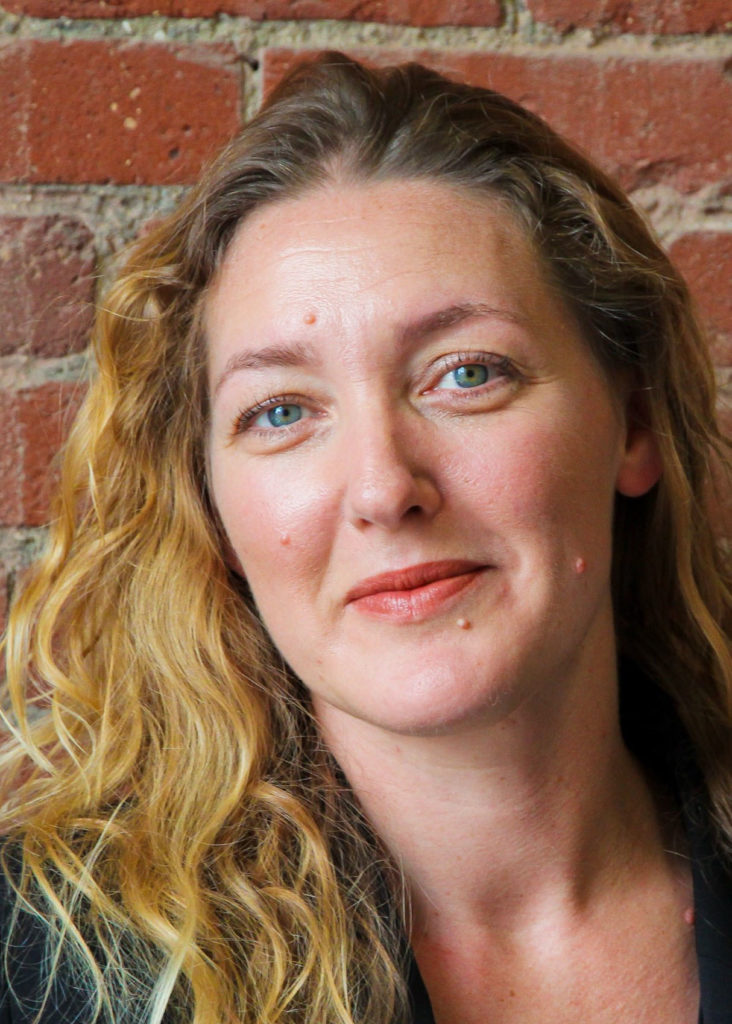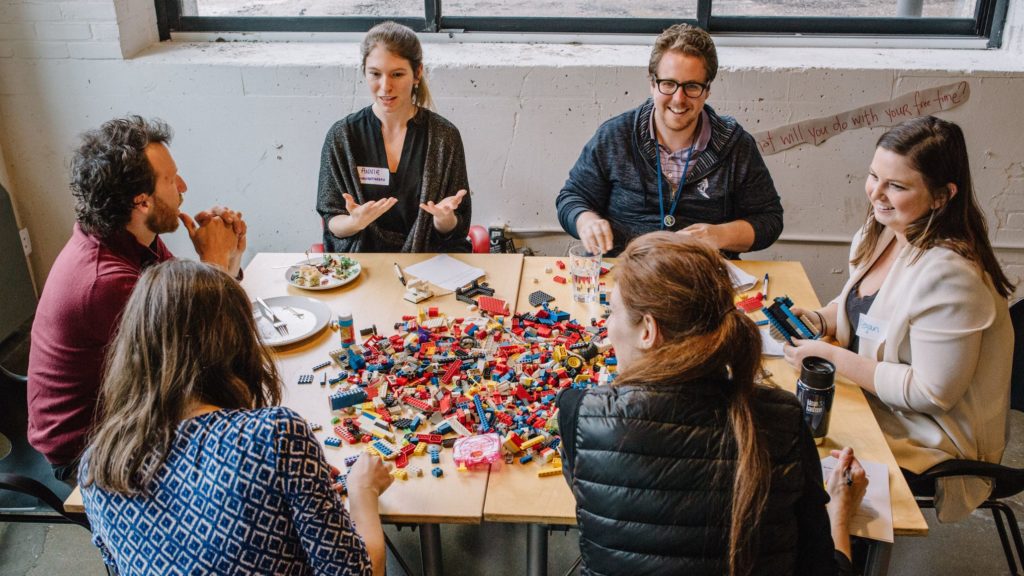A Climate and Cleantech Hub Grows out of a Community of Changemakers: The CSI Story


What would happen if you brought the social mission sector together to pool resources, access better office facilities and amenities, break down silos, and collaborate? That’s exactly what the Centre for Social Innovation set out to discover – and the results, as CEO Tonya Surman explains, have led to meaningful impacts in their communities and beyond.
To understand our approach to supporting climate solutions and cleantech entrepreneurs, you have to understand a bit about the Centre for Social Innovation’s community.
We opened our doors 15 years ago as an experiment: What would happen if you brought the social mission sector together to pool resources, access better office facilities and amenities, break down silos, and collaborate? This experiment worked and became one of the first coworking spaces in the world. We are a Canadian success story. And yet at every stage in our growth, we faced barriers where private companies would have found opportunities.
When we needed capital for our first expansion we were excluded from government enterprise growth programs because we are a non-profit.
To buy our first building, we talked to venture capitalists. They saw our fast growth and offered to buy us, but because of our non-profit status, they wouldn’t give us a loan.
Infrastructure Ontario considered us ineligible because we didn’t receive ‘enough’ government funding.
We could get a mortgage, but there was no source of capital for our equity portion.
“While many accelerators tend to focus exclusively on the patentable and scalable, there’s a strong argument for also supporting a legion of smaller enterprises that will cumulatively have a huge impact“
Tonya Surman
Ineligible on both the for-profit and nonprofit sides, we invented the Community Bond. We bought the building through community-based investing. And then we did it again a few years later.
Fast forward, and we now own two buildings in downtown Toronto, run a third location in Regent Park (we are striving to make all three locations zero waste, and our coffee and tea are organic and fair trade), and have an affiliate space in New York City. Our over 2,500 members work across sectors, addressing important social and environmental challenges, and generating approximately $250M in collective annual revenues. We are a crucial part of our community, working with the city on the development of nonprofit real estate solutions, and to align our economic development programs and supports to bring social ventures into the mainstream programs.
Our members – and the community they form – are what has made us stand out and be successful. Where else can you find a doula working next to a solar entrepreneur, or nonprofits and for-profits learning from each other and collaborating, or microenterprises under the same roof as large, international organizations? We are the proud home of Civic Hall, a partnership with the city focused on building the capacity of city staff to be able to engage with citizen solutions more actively.

The diversity of our membership and of the solutions they are implementing makes our community more resilient and able to tackle complex problems. The climate crisis – its causes, impacts and injustices – is one such complex problem, and it will affect the work of all our members, threatening to reverse some of the progress on different social and environmental challenges that they have been working so tirelessly to overcome.
Our community is like a microcosm of the world we aspire to build, of the Next Economy, one that is regenerative, equitable, and prosperous for all. So seeing how the climate emergency will impact the work of our community is just a smaller representation of how it will hinder global progress towards the Sustainable Development Goals.
We wanted to focus on climate change both because of the monumental threat it poses, as well as the power of our multidisciplinary community to respond to it.
For many years now, CSI has provided acceleration programs to amplify the impact and accelerate the success of promising social entrepreneurs, whether in community health, city building, or other areas. Over 375 enterprises have been through our different programs.
For our first climate program back in 2011, we teamed up with the Atmospheric Fund and the Toronto Community Foundation to launch the ClimateSpark Social Venture Challenge. Our goal was to identify, strengthen and launch promising social ventures that could tackle the causes and effects of climate change. This three-phased program included an online crowd-sourcing platform, a two-day venture development boot camp, and a Dragon’s Den-style pitch competition for close to $750,000 in funding.
Then from 2017-2019, we ran Agents of Change: Climate Solutions, an accelerator for early-stage enterprises reducing GHG emissions. These small enterprises are working on local problems while creating meaningful employment. During the two accelerators, the 38 enterprises earned and raised $3.7M, an 81% increase, created 26.5 new full-time equivalent jobs while employing 104 full-time jobs (representing a 24% growth), and reduced 1,135 tCO2e.
While many accelerators tend to focus exclusively on the patentable and scalable, there’s a strong argument for also supporting a legion of smaller enterprises that will cumulatively have a huge impact. In Canada, more than half of small and medium-sized enterprises have fewer than 4 employees. And yet small enterprises make up the majority of businesses and employ the majority of private-sector workers. Small can be big.
But scale is also important, and around this time we began thinking about how we could also support hard tech entrepreneurs, as well as apply our proven coworking model to climate solutions. The result was Climate Ventures.
We opened Climate Ventures over a year ago as a dedicated workspace and incubator for anyone working on climate change and the environment. At the same time, we launched a Cleantech Fellowship – in 12 months, 12 enterprises raised and earned over $17.4M, a 481% increase, supported 95 full-time jobs, an increase of 86%, and achieved 641 tCO2e indirect reductions through pilots.

During this first year, we also suffered significant funding cuts after the cancellation of the province’s Cap and Trade program. We weathered these cuts thanks in part to being a nonprofit social enterprise with a sustainable revenue model, and in part to new funders such as the Peter Gilgan Foundation stepping up.
Climate Ventures now has over sixty member enterprises and organizations, and over 40 advisors who volunteer their time. We have just launched Earth Tech, an accelerator program for tech solutions to freshwater and climate challenges that will run for three years thanks to the support of the RBC Foundation, Bullfrog Power, and others.
In total, Climate Ventures members and accelerated enterprises have earned and raised $24,483,649, supported 263 jobs, and reduced 2,100 tCO2e through pilots.
Project Drawdown, which mapped and modelled the 80 most substantive solutions to stop and reverse global warming, shows us that this crisis will be solved with solutions being deployed in every sector, throughout society, and most often locally.
In a time of global crisis and rising nationalist populism, it could not be more important to create a space for both the small and the scale, the for-profit and nonprofit, the market-based solutions and the community-based ones where everyone feels they can be a part of the solution. On a chalkboard in the Climate Ventures space, we have one of my favourite quotes by Margaret Wheatley: “It is possible to use our influence and power to create islands of sanity in the midst of a raging destructive sea.”
That is what Climate Ventures was created to do, and what we will keep doing, until that raging destructive sea has settled.

















